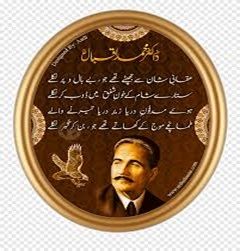Introduction
Allama Iqbal the Visionary Poet and Philosopher of the East, Allama Muhammad Iqbal (1877–1938), widely known as “Mufakkir-e-Pakistan” (The Thinker of Pakistan), stands as one of South Asia’s most significant philosophers, poets, and political visionaries. His thoughts have profoundly influenced the Muslim world, particularly inspiring the creation of Pakistan. This article delves into his early life, educational journey, intellectual contributions, and his impact on both Eastern and Western philosophy.
Early Life and Education
Born in Sialkot, British India, Iqbal’s early education was shaped by a traditional setting. However, his intellectual thirst soon propelled him to seek knowledge beyond borders. He went on to study in Lahore and later in Europe, where he was significantly influenced by Western philosophers, such as Nietzsche and Goethe, which shaped his perspectives on individuality, spirituality, and nationalism.
Philosophy and Poetry
Iqbal’s poetry was deeply embedded with themes of self-realization, spirituality, and Muslim identity. His concept of “Khudi” (selfhood) became central to his philosophy, encouraging Muslims to realize their potential and autonomy. His writings, especially in Persian and Urdu, used powerful metaphors and symbols, appealing to a wide range of audiences and offering a blueprint for individual and collective empowerment.
Concept of Khudi and Selfhood
One of Iqbal’s most notable contributions is his philosophy of Khudi, which emphasizes self-discovery and self-respect. According to Iqbal, this selfhood is crucial for developing a strong and resilient personality. In works like Asrar-e-Khudi (Secrets of the Self), he explores how personal growth and spiritual awakening are essential for achieving one’s purpose.
Vision of a United Muslim Ummah
Iqbal believed in the concept of a united Muslim community. His poem “Shikwa” and its follow-up “Jawab-e-Shikwa” reflect his concerns about the decline of Muslims and his vision for their revival. He encouraged Muslims to embrace knowledge, unity, and faith to overcome societal challenges.
Political Ideology and Influence on Pakistan Movement
Allama Iqbal: The Visionary Poet and Philosopher of the East, Iqbal’s vision laid the intellectual foundation for the Pakistan movement. In his 1930 presidential address at the Allahabad Session, he articulated the idea of a separate Muslim state in the Indian subcontinent. This address marked a turning point, as his vision became a key motivator for future leaders, including Muhammad Ali Jinnah, who led the movement for Pakistan’s independence.
Legacy and Relevance Today
Iqbal’s thoughts continue to resonate in contemporary discourse on Islamic philosophy, politics, and identity. His works remain a core part of Pakistan’s educational curriculum, and his ideas on empowerment, unity, and spirituality continue to inspire across generations.
Conclusion
Allama Iqbal’s contributions as a philosopher, poet, and political visionary leave an indelible mark on history. His legacy as the “Poet of the East” is a testament to his timeless appeal and his vision for a strong, united, and empowered Muslim world.

8 thoughts on “Allama Iqbal the Visionary Poet and Philosopher of the East”
Comments are closed.